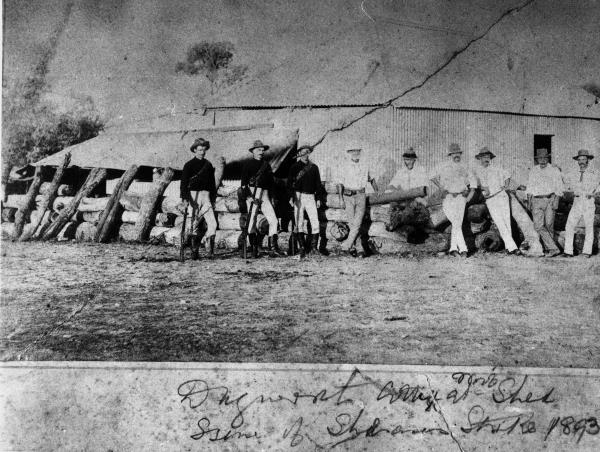By NOEL MURPHY
AUSTRALIA’S unofficial national anthem, Waltzing Matilda, has always had its dark side – police pursing a sheep duffing swaggie to a watery death.
But the truth could be even more sinister.
Banjo Paterson’s co-writer, Christina Macpherson, borrowed the tune to The Craigielee March after hearing it at the Warrnambool races but the orgins of the lyrics, long tied to the 1894 shearers strike, have now been linked to a macabre discovery.
Melbourne barrister Benjamin Lindner has unearthed the story of Samuel Hoffmeister, a radical shearer widely believed the inspiration for Paterson’s anthem and who died in suspicious circumstances in western Queensland.
Lindner recently discovered that Hoffmeister, who one inquiry declared committed suicide, was buried headless at a secret location.
His death in a bush camp near Kynuna, possibly from shooting himself as police closed in, followed a violent night when a gang of shearers burned down Dagworth Station’s shearing shed after a gun battle with its protectors.
Linder said a play, The Man They Call The Banjo, to be staged next month at Little River then Drysdale, inspired his reasearch.
“I was immediately attracted to the legal aspect,” Lindner said.
“After reading transcripts of the inquests into the death of Samuel Hoffmeister and then the woolshed fire, it was apparent that the police investigation was inadequate.”
Lindner’s finding highlighted the brutality of the near-civil war of 1894 while reopening speculation about Hoffmeister’s death and the inspiration for Waltzing Matilda, written while Paterson was a guest at Dagworth Station not long after the woolshed arson and Hoffmeister’s apparent suicide.
Together, Lindner’s research and Felix Meagher’s play present startling, unfamiliar perspectives on Waltzing Matilda.
Meagher noted that many of those involved in the song’s earliest versions said little about it, including Paterson.
“They clearly have not wanted the story to be told,” he said.
“It becomes a bit of a mystery and the more mystery there is the more you want to know.”
The Mt Rothwell performances of The Man They Call The Banjo are on 17 and 18 April and at Drysdale’s Potato Shed on 2 May.









